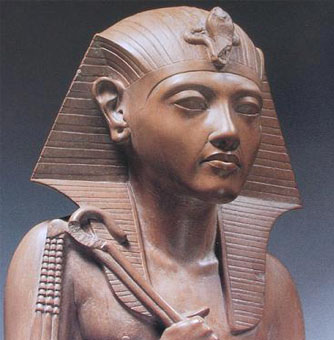University denies test on Egyptian bust in Berlin
 Berlin - A German university denied Monday that it had analysed the bust of Pharaoh Hatshepsut, an Egyptian sculpture at a Berlin museum, or suggested the statue was a forgery.
Berlin - A German university denied Monday that it had analysed the bust of Pharaoh Hatshepsut, an Egyptian sculpture at a Berlin museum, or suggested the statue was a forgery.
The bust of the female ruler is one of the icons of the Egyptian Museum in the city. It was acquired for 1 million marks (510,000 euros or about 715,000 dollars) two decades ago.
A news report Sunday said a test of the stone suggested it might be a fake. But the Technical University of Berlin said it had never studied the bust's authenticity.
Scientists had in December 2007 merely studied some tiny flakes of stone found on the statue.
"The analysis found these flakes were made of rock rich in the minerals magnesite and siderite. Where these flakes came from has not been established," a statement by the university said.
The German news magazine Der Spiegel had asserted such rock was not sculpted in any other known Pharaonic statue and that this implied the figure was fake.
Hatshepsut ruled Egypt for 22 years till her death in 1458 BC. Her 16.5-centimetre-high brown granite bust is a key draw at the museum, along with a limestone bust of exquisite Queen Nefertiti.
The Berlin museum has been criticized by Cairo officials for refusing to give Nefertiti's bust, regarded as a national treasure, back to Egypt.(dpa)